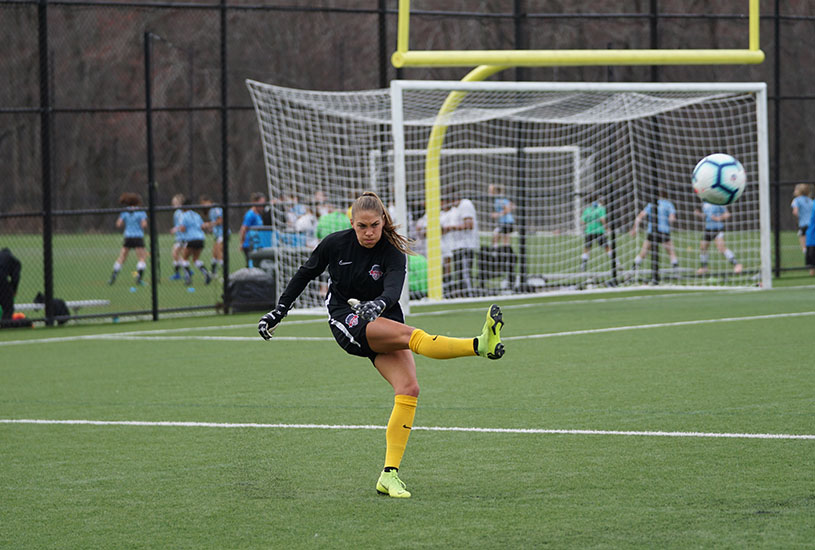Deakin researchers and the AFL are working together to improve children’s access to sport.
In a world-first, researchers with Deakin University’s Child Study Centre have partnered with the Australian Football League to investigate if playing football can improve the developmental, physical and mental health of children with developmental challenges.
The national ALLPlay Program aims to promote physical activity, wellbeing, and inclusive practices for all young Victorians, regardless of physical, psychological, or social disadvantage.
The program is a joint venture between the Deakin Child Study Centre (DCSC), the Australian Football League (AFL) and the Moose Foundation, alongside Victorian and National collaborations with the University of Melbourne, University of Western Australia and Charles Darwin University.
Professor Nicole Rinehart, Director of the DCSC, said a generous donation of $1 M from Moose Toys would enable the project team to gather evidence of how and why being involved in sport is important for all children, regardless of ability.
“It is well documented that team sports and physical activity are protective factors for children and have long lasting benefits to health.
“Yet access to sport is not a level playing field in Australia. Parents of children with disabilities are still receiving advice along the lines of ‘your child will never be able to play team sports, perhaps pick a solitary sport’,” Prof Rinehart said.
[testimonial_text]This will be a real game changer for Australian sport.[/testimonial_text]
[testimonial_picture name=”Professor Nicole Rinehart” details=”Director of DCSC”]
 [/testimonial_picture]
[/testimonial_picture]The Moose Toys funding will be invested in creating opportunities for the many thousands of Australian children who are affected by a developmental challenge, such as autism, ADHD, cerebral palsy, language disorders, intellectual disabilities, and genetic conditions that often mean they are excluded from playing sport.
“Thanks to the generous support of Moose Toys, we aim to break down the barriers that prevent some children from being included in sports.
“This will have an enormous impact on our community, where disability is associated with disadvantage, low expectations, exclusions, obesity, poor school attendance and poor mental health,” Prof Rinehart said.
“With the evidence we gather it is possible that in the near future clinicians will prescribe team sports as a key intervention for children diagnosed with a developmental challenge.
“This will be a real game changer for Australian sport.”
Prof Rinehart explained that the ALLPlay program would kick off in December with a national survey.
The survey will capture the voice and lived experience of children, parents, and coaches from around Australia and facilitate the development of an evidence-based “AFL Auskick ToolKIT.” It will be an Australian-first intervention that will incorporate cost-effective, state-of-the-art IT technology applicable to any sporting organisation that seeks to improve the way children with disabilities participate in organised sports.
At the end of the four-year program, the researchers will have an internationally significant research database that includes neurobehavioural, genetic, physical, psychological and social measures from the Australian population of children with developmental challenge, with representation from every corner of the country.
AFL General Manager of Game and Market Development Simon Lethlean said the AFL was excited to partner with Deakin to help support the inclusion of all children in Australian Football, regardless of ability.
“A critical role of the AFL is to promote inclusion and diversity in Australian Football. When it comes to people with a disability this means having programs to not only promote and enable participation in the sport, but programs to raise awareness across the community,” Mr Lethlean said.
“One in five Australian children will have a developmental challenge, ranging from a minor to a major difficulty, and it’s important that our activities and programs are accessible to everyone.
“The AFL is continuing to building a culture of inclusion throughout Australian Football and we look forward to working closely with the DCSC to break down the barriers to include children with disabilities.”
• For more information and to participate in the survey, visit the AllPlay website.



